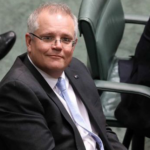Brian Houston Found Not Guilty of Concealing Child Sexual Abuse

Hillsong Church Founder Brian Houston has been cleared of accusations he concealed child sexual offences committed by his father, Frank Houston, in the 1970s.
Brian Houston, who is a long time friend of former Australian Prime Minister Scott Morrison, was charged by New South Wales police in 2021 with concealing a a child abuse offence of another person, for allegedly failing to report to police his father Frank’s confession that he had repeatedly sexually assaulted a young boy who was a member of a church where he preached.
Frank Houston was a pastor of Pentecostal churches both in New Zealand and Sydney, and founded the Sydney Christian Life Centre, which eventually merged into Hillsong Church.
Frank Houston’s confession
The allegations against Frank Housten originally came to light during the 2014 Royal Commission into Child Sexual Abuse.
The victim of the covered-up allegations, Brett Sengstock, waived his anonymity in 2018, in order to publicly ask Brian Houston why he didn’t report his father to police.
Brian Houston has always maintained his own innocence and pleaded not guilty to the charge over covering up for his father.
The court heard that Frank Houston confessed his offending to his son in 1999. He died in 2004, Brian Houston reported it to senior members of the church but not to police.
Frank Houston was never charged with child sex offences, although at a separate hearing last year Brian Houston told the court that his father was a “serial paedophile” and that over the years a number of victims had also come forward.
Historical child sex offences?
Mr Houston maintained that he had a “reasonable excuse” not to report his father’s offending because this was in keeping with the victim’s wishes, who had told him that he did not want it reported.
When questioned by the magistrate whether he had any concerns about his father reoffending after he made his confession, Brian Housten said he believed that at ‘78 years of age, with failihng health, he did not believe his father was a risk to anyone.’
Houston also claimed there was no evidence his father continued to abuse minors after around the late 1970s.
Brian Houston admitted that his father made a payment of $2,000 to the victim, which was later topped up by another payment of $10,000, organised by Brian, but stressed that it was not intended in any way to buy Mr Sengstock’s silence or prevent him from going to the police in the future.
Mr Sengstock’s testimony provided more details about Frank Houston’s abuse, which began when he was seven years old and escalated over years, with Frank Houston “repeatedly” raping him in his Sydney home.
In his evidence, he denied ever telling Brian Houston he did not want the matter reported to police. Prosecutors argued that Brian Houston’s rationale for failing to report his father’s offending to police was not out of respect for the victim’s wishes, but out of a desire to protect the reputation of the church and his family.
However, in the Downing Centre local court, Magistrate Gareth Christofi found Mr Houston not guilty saying there is “little doubt in my mind that the accused knew Mr Sengstock did not want the matter reported to police.
“He therefore had a reasonable excuse for not bringing the matter to the attention of police.”
Concealing a child abuse offence
Concealing a child abuse offence is a crime under section 316A of the NSW Crimes Act 1900.
The section provides as follows:
- An adult–
(a) who knows, believes or reasonably ought to know that a child abuse offence has been committed against another person, and
(b) who knows, believes or reasonably ought to know that he or she has information that might be of material assistance in securing the apprehension of the offender or the prosecution or conviction of the offender for that offence, and
(c) who fails without reasonable excuse to bring that information to the attention of a member of the NSW Police Force as soon as it is practicable to do so,
is guilty of an offence.
The maximum penalty for this offence is 2 years–if the maximum penalty for the child abuse offence is less than 5 years imprisonment, or 5 years–if the maximum penalty for the child abuse offence is 5 years imprisonment or more.
“Reasonable Excuse”
Under the law, a person has a “reasonable excuse” for failing to bring information to the attention of a member of the NSW Police Force if–
-
- the person believes on reasonable grounds that the information is already known to police, or
- the person has reported the information in accordance with the applicable requirements under the Children and Young Persons (Care and Protection) Act 1998 or the Children’s Guardian Act 2019 or believes on reasonable grounds that another person has done so
-
- the person has reasonable grounds to fear for the safety of the person or any other person (other than the offender) if the information were to be reported to police, or
- the information was obtained by the person when the person was under the age of 18 years, or
- the alleged victim was an adult at the time that the information was obtained by the person and the person believes on reasonable grounds that the alleged victim does not wish the information to be reported to police, or
-
- the information is about an offence under section 60E (this section of the Act refers to assaults in schools). that did not result in any injury other than a minor injury (for example, minor bruising, cuts or grazing of the skin) and the alleged offender and the alleged victim are both school students who are under the age of 18 years, but only if the person is a member of staff of–
(i) a government school and the person has taken reasonable steps to ensure that the incident reporting unit (however described) of the Department of Education is made aware of the alleged offence, or
(ii) a non-government school and the person has taken reasonable steps to ensure that the principal or governing body of the school is made aware of the alleged offence.







